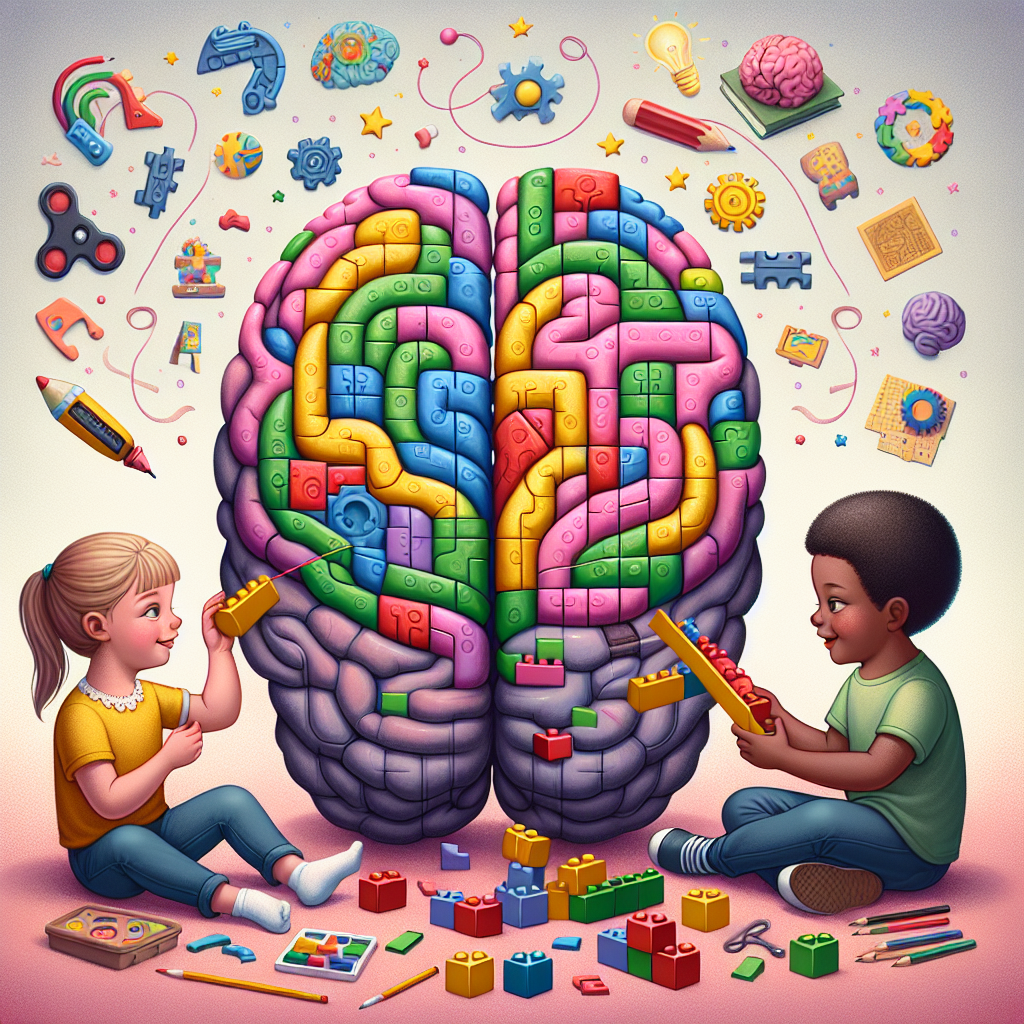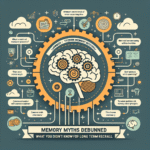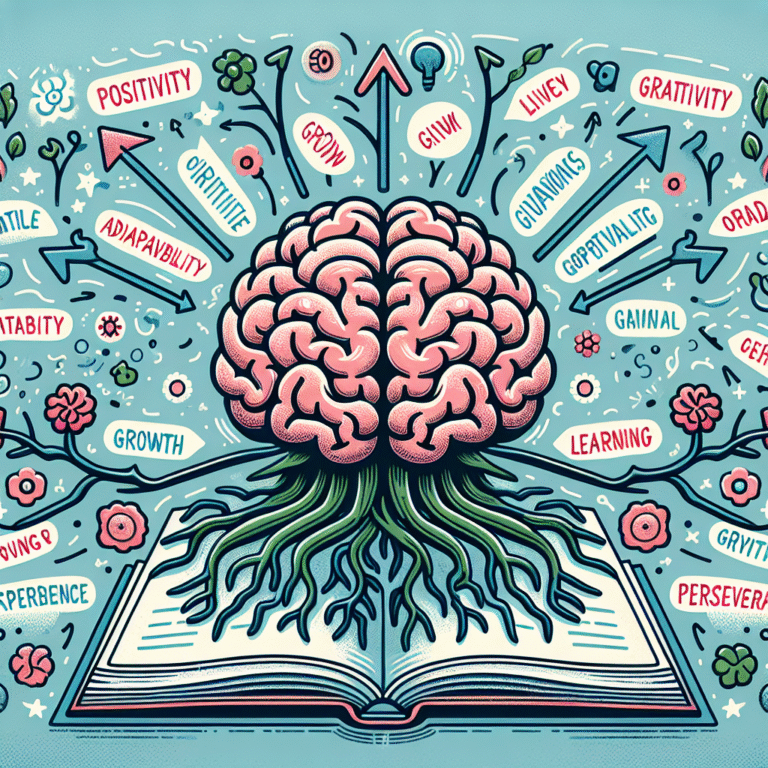
Introduction
Imagine watching a seed grow into a magnificent tree. This transformation doesn’t just happen overnight; it requires the right conditions, constant care, and nurturing. Just like a tree, the human brain develops in response to the experiences it encounters, especially during the critical early childhood years. Building blocks of the brain: how early childhood experiences shape cognitive skills is a concept that emphasizes the intricate relationship between environmental influences and the cognitive development of children. By understanding this relationship, we can foster resilient, well-rounded individuals who can thrive in an increasingly complex world.
In this article, we’ll explore how various experiences during early childhood serve as essential building blocks for cognitive development, drawing on compelling case studies and scientific insights. Whether you’re a parent, educator, or just someone interested in the nuances of human development, this topic is vital for creating a nurturing environment that supports cognitive growth.
The Science of Brain Development
The Early Brain: A Blank Slate or a Rich Canvas?
At birth, a child’s brain contains over 100 billion neurons, the building blocks that form the nervous system. However, these neurons are only the beginning. The connections—or synapses—between them are what enable cognitive skills such as thinking, learning, and memory. By the age of 3, a child’s brain has formed around 1,000 trillion synapses, which is twice as many as an adult’s brain. The experiences children encounter during these formative years dictate which connections flourish and which fade away.
Synaptogenesis and Pruning
During the first few years of life, synaptogenesis—the formation of new synapses—occurs at an astonishing rate. However, not all connections will be retained; the process of synaptic pruning eliminates weaker or less-used connections. This pruning is influenced heavily by interactions with caregivers, educational experiences, and social environments. It illustrates the essence of the building blocks of the brain: how early childhood experiences shape cognitive skills.
Case Study: The Impact of Healthy Attachment
Consider a study conducted by the National Institute for Children’s Health Quality. Researchers found that children with secure attachments to caregivers tend to perform better in cognitive tests than those with insecure attachments. Secure attachment fosters a sense of safety, which encourages exploration and learning. This case study clearly demonstrates how emotional connections during early childhood serve as foundational building blocks for cognitive skills.
| Type of Attachment | Cognitive Performance | Emotional Regulation |
|---|---|---|
| Secure | High | Excellent |
| Insecure | Moderate to Low | Challenging |
Critical Periods for Development
The notion of critical periods in brain development further emphasizes the importance of early experiences. Certain cognitive abilities, such as language acquisition, have specific windows during early childhood where they can be most effectively developed. Neglecting these periods can result in long-term deficits in these skills.
Language Development: A Critical Window
Research shows that infants exposed to a rich language environment, filled with varied vocabulary and expressions, are more likely to develop advanced linguistic abilities later on. This aligns with the focus keyword building blocks of the brain: how early childhood experiences shape cognitive skills, underscoring the fact that early language exposure is crucial for cognitive growth.
Case Study: The Hart-Risley Study
In the late 1990s, researchers Betty Hart and Todd Risley explored the language exposure among children from families of varying socioeconomic backgrounds. They discovered that children from wealthier families were exposed to approximately 30 million more words by the age of 3 compared to children from lower-income families. This exposure positively correlates with performance in school later on, reaffirming that early language experiences serve as fundamental cognitive building blocks.
Environmental Influences on Cognitive Skills
The Role of Socioeconomic Status
One cannot discuss building blocks of the brain: how early childhood experiences shape cognitive skills without considering the impact of socioeconomic status. A family’s financial capabilities significantly influence their ability to provide enriching experiences, educational materials, and a healthy environment for a child’s development. Children from lower-income families often face higher stress levels, which can impede cognitive growth.
Creating Equal Opportunities
To mitigate the effects of socioeconomic disparities, early interventions such as Head Start programs have been implemented. These programs offer educational resources and nutritional support to underprivileged children, aiming to level the playing field.
Case Study: The Abecedarian Project
The Abecedarian Project was an intensive early childhood intervention program targeting children from low-income families. The study showed that participants demonstrated significantly higher IQ levels and better academic performance throughout their lives compared to a control group. This project provides clear evidence of how structured early experiences can serve as critical building blocks of the brain.
The Power of Play in Cognitive Development
Play: The Ultimate Learning Tool
Play is not merely a recreational activity; it’s one of the most critical building blocks in cognitive development. When children play, they engage in problem-solving, critical thinking, and social interaction—all skills that contribute to cognitive growth.
Types of Play
- Structured Play: Activities like board games or educational apps that have specific rules or objectives.
- Unstructured Play: Free-play activities that allow for creativity and exploration, such as art or outdoor play.
Scientific studies suggest that both structured and unstructured play can enhance cognitive skills, emotional regulation, and social abilities.
Case Study: The Benefits of Nature Play
A study examining children who spent time in natural settings showed that those engaged in outdoor play exhibited better problem-solving skills and enhanced creativity. Nature serves as a magnificent backdrop for learning, offering endless opportunities for discovery, socialization, and cognitive engagement.
| Type of Play | Cognitive Skills Enhanced |
|---|---|
| Structured | Critical Thinking, Teamwork |
| Unstructured | Creativity, Problem Solving |
| Nature Play | Exploration, Adaptability |
Parental Involvement: A Vital Component
The Importance of Active Engagement
Parental involvement is another cornerstone in understanding building blocks of the brain: how early childhood experiences shape cognitive skills. When parents engage in storytelling, interactive games, or educational activities, they signal the importance of learning to their children. This can positively enhance cognitive skills and can even inspire a lifelong love for learning.
Case Study: The Home Instruction for Parents of Preschool Youngsters (HIPPY) Program
The HIPPY program demonstrates the transformative power of parental involvement. It equips parents with training and resources to foster cognitive skills in their children. Results showed children in the program scored higher on various measures of cognitive ability compared to their peers. Parental engagement acts as a vital building block that shapes cognitive development.
Technological Influences on Cognitive Growth
The Digital Dilemma
In a world dominated by technology, it’s essential to understand its role in cognitive development. While certain educational apps can provide valuable learning experiences, excessive screen time can hinder social interaction and reduce physical playtime.
Balancing Screen Time
To ensure technology acts as a facilitator rather than a hindrance, parents and educators should encourage balanced use of digital tools.
Case Study: Screen Time and Academic Performance
Research indicates that children who spend excessive time on screens score lower in reading and math. By focusing on productive digital interactions, such as educational games, the adverse effects of screen time can be mitigated.
Building a Supportive Environment
Creating a Stimulating Learning Atmosphere
The home and school environments influence cognitive skills significantly. A stimulating environment filled with books, educational toys, and opportunities for exploration can support the developing brain.
The Role of Communities
Community programs that provide resources, mentorship, and educational opportunities can help build a supportive environment for children, thereby boosting cognitive skills.
Case Study: Community Schools Initiative
Community schools that provide comprehensive support services—nutrition, health care, and educational resources—have seen significant improvements in students’ cognitive abilities. This community-based approach exemplifies how collaborative environments serve as foundational building blocks of the brain.
Conclusion
The building blocks of the brain are laid during the early years of life, influenced by an intricate tapestry of experiences, emotional bonds, and interactions with the environment. By understanding how these elements come together to shape cognitive skills, we can take proactive steps to nurture children’s brain development.
As parents, educators, and community members, we have the power to create enriching environments that provide the best possible start for the children in our lives. Let’s not underestimate the importance of these formative years; instead, let’s celebrate and invest in the potential they hold.
FAQs
1. How can I improve my child’s cognitive skills at home?
Engage in interactive activities, encourage reading, provide educational materials, and foster open communication.
2. What is the impact of neglect on cognitive development?
Neglect can hinder synaptic development, affecting emotional regulation and cognitive skills, leading to cognitive delays.
3. Are there specific activities that enhance cognitive skills?
Yes, activities like storytelling, problem-solving games, and hands-on learning experiences can promote cognitive development.
4. How does socioeconomic status affect cognitive skills?
Lower socioeconomic status may limit access to educational resources and supportive environments, hindering cognitive growth.
5. Can technology benefit cognitive development?
Yes, when used appropriately, educational apps can enhance learning, but balance is crucial to avoid negative impacts from excessive screen time.
The journey of building cognitive skills is essential in shaping the future of our children. By focusing on transformative experiences and fostering supportive environments, we can lay strong foundations for their lifelong success.

















